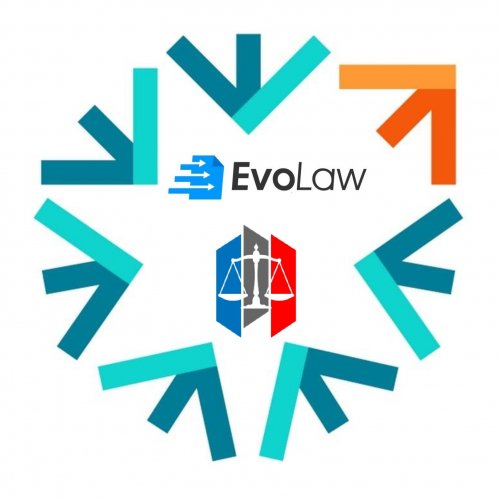Best Corporate & Commercial Lawyers in El Salvador
Share your needs with us, get contacted by law firms.
Free. Takes 2 min.
Or refine your search by selecting a city:
List of the best lawyers in El Salvador
About Corporate & Commercial Law in El Salvador
Corporate and commercial law in El Salvador governs the formation, operation, and dissolution of companies, as well as the regulation of business activities, contracts, investment, and trade. Whether you are a local entrepreneur, a foreign investor, or part of a multinational, understanding how these laws work is crucial for operating legally and efficiently. The legal framework combines local statutes, such as the Commercial Code, with international treaties and commercial practices, which makes the business environment in the country both dynamic and regulated.
Why You May Need a Lawyer
Many situations can require legal guidance in the field of corporate and commercial law in El Salvador. Common cases include incorporating a new business, drafting or reviewing contracts, handling mergers or acquisitions, navigating employment regulations, securing investment, managing disputes between shareholders, or ensuring compliance with tax authorities. A lawyer can help you understand the legal environment, minimize risks, and ensure your operations comply with all obligations, reducing the possibility of costly legal challenges in the future.
Local Laws Overview
El Salvador’s commercial legal system is primarily built upon the Commercial Code, the Civil Code, the Law of Commercial Registry, and various sector-specific laws. Major aspects include:
- Company Formation - The most common types of companies are the Sociedad Anónima (S.A.) and the Sociedad de Responsabilidad Limitada (S.R.L.). Requirements include a minimum number of shareholders, registration processes, and minimum capital.
- Contract Law - Contracts are generally binding if they follow public order laws and are freely entered into. Written contracts are strongly recommended.
- Foreign Investment - El Salvador allows foreign investment with some sector restrictions. Companies must still comply with registration and operational requirements.
- Employment Regulations - The Labor Code covers hiring, salary, benefits, and termination processes. Labor matters are highly regulated and should be managed with care.
- Tax Obligations - Companies must register with the Ministry of Finance and comply with value-added tax (VAT), income tax, and municipal taxes, among others.
- Compliance and Corporate Governance - Annual meetings, record-keeping, and official filings are mandatory for most company types.
- Dispute Resolution - Commercial disputes can be resolved through courts or alternative mechanisms such as arbitration, often stipulated in contracts.
Understanding these key areas is fundamental to operating successfully in El Salvador’s corporate environment.
Frequently Asked Questions
What types of companies can I register in El Salvador?
The most common business entities in El Salvador are the Sociedad Anónima (S.A.), suitable for larger ventures, and the Sociedad de Responsabilidad Limitada (S.R.L.), appropriate for smaller or family businesses. Other forms include sole proprietorships and partnerships.
What are the requirements to incorporate a company?
You need at least two shareholders, articles of incorporation, a local legal representative, a registered address in El Salvador, and minimum share capital. The company must be registered with the Commercial Registry and the Ministry of Finance.
Are there restrictions on foreign ownership of companies?
El Salvador generally allows 100 percent foreign ownership, except in sensitive sectors like national defense and some public utilities, where restrictions may apply.
How can I ensure my contracts are enforceable?
To be enforceable, contracts should be drafted in writing, clearly outline all terms, and be executed by parties with legal capacity. Some contracts must also be notarized or registered with public authorities to have full legal effect.
Do I need a local partner to do business in El Salvador?
No, local partners are not mandatory for most types of businesses. However, a local legal representative is required if none of the shareholders reside in the country.
What are my main tax obligations as a business owner?
Companies must register with the Ministry of Finance and are subject to income tax, value-added tax (VAT), municipal taxes, and social security payments for employees. Filing and payment deadlines must be strictly followed to avoid penalties.
How are commercial disputes resolved?
Most disputes are handled through the Salvadoran civil courts. Many contracts include arbitration clauses as an alternative, which can expedite resolution and reduce costs. Mediation is also available for certain types of disagreements.
What are the annual reporting requirements for companies?
Most companies must hold annual meetings, update their shareholder and director records, file annual financial statements, and keep up with commercial registry requirements.
What labor laws should I be aware of?
Hiring, compensation, working hours, benefits, social security contributions, and termination of employees are all regulated by the Labor Code. Compliance is important to avoid sanctions or lawsuits.
How can I protect my business’s intellectual property?
Trademarks, patents, and copyrights can be registered with the National Registry of Intellectual Property (Registro de la Propiedad Intelectual) to ensure your rights are protected throughout El Salvador.
Additional Resources
For further information and assistance, consider the following resources:
- Ministry of Economy (Ministerio de Economía) - For company registration, investment, and sector regulations
- Commercial Registry (Registro de Comercio) - For incorporation, changes to company structure, and public filings
- Ministry of Finance (Ministerio de Hacienda) - For tax registration and compliance
- National Registry of Intellectual Property (Registro de la Propiedad Intelectual) - For intellectual property rights
- Superintendence of Competition (Superintendencia de Competencia) - For competition law and market regulation issues
- Salvadoran Bar Association (Colegio de Abogados de El Salvador) - For lawyer referrals and professional standards
- Chamber of Commerce and Industry of El Salvador (Cámara de Comercio e Industria de El Salvador) - For business networking, legal updates, and support for entrepreneurs
Next Steps
If you believe you need legal assistance with corporate and commercial matters in El Salvador, start by clearly defining your goals and potential challenges. Gather all relevant documents and information about your business or the issue at hand. Consult with a qualified Salvadoran lawyer who specializes in corporate and commercial law. They can offer tailored advice, assist with filings, review contracts, and represent you in negotiations or disputes. Make sure to ask about costs and timelines up front. Engaging a legal expert early often saves time, money, and complications down the road.
Lawzana helps you find the best lawyers and law firms in El Salvador through a curated and pre-screened list of qualified legal professionals. Our platform offers rankings and detailed profiles of attorneys and law firms, allowing you to compare based on practice areas, including Corporate & Commercial, experience, and client feedback.
Each profile includes a description of the firm's areas of practice, client reviews, team members and partners, year of establishment, spoken languages, office locations, contact information, social media presence, and any published articles or resources. Most firms on our platform speak English and are experienced in both local and international legal matters.
Get a quote from top-rated law firms in El Salvador — quickly, securely, and without unnecessary hassle.
Disclaimer:
The information provided on this page is for general informational purposes only and does not constitute legal advice. While we strive to ensure the accuracy and relevance of the content, legal information may change over time, and interpretations of the law can vary. You should always consult with a qualified legal professional for advice specific to your situation.
We disclaim all liability for actions taken or not taken based on the content of this page. If you believe any information is incorrect or outdated, please contact us, and we will review and update it where appropriate.
Browse corporate & commercial law firms by service in El Salvador
El Salvador Attorneys in related practice areas.
Browse corporate & commercial law firms by city in El Salvador
Refine your search by selecting a city.














